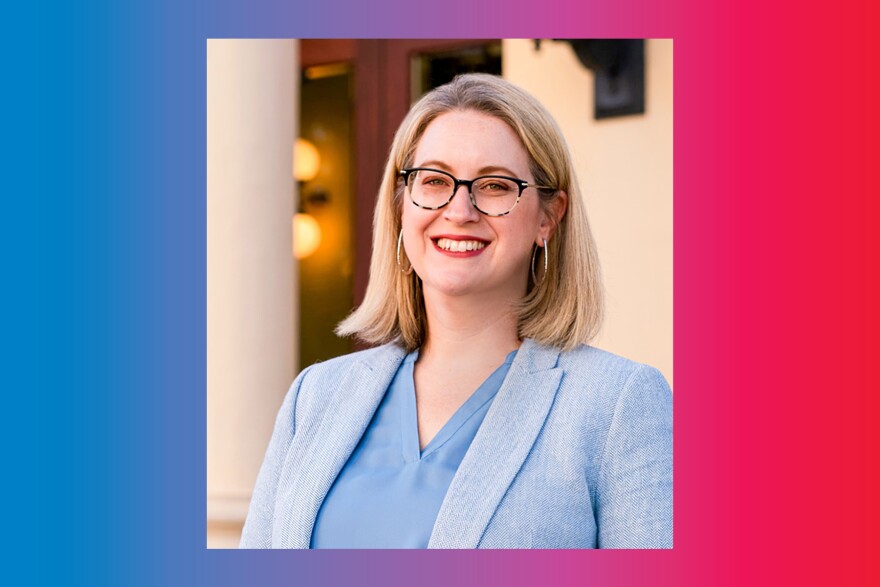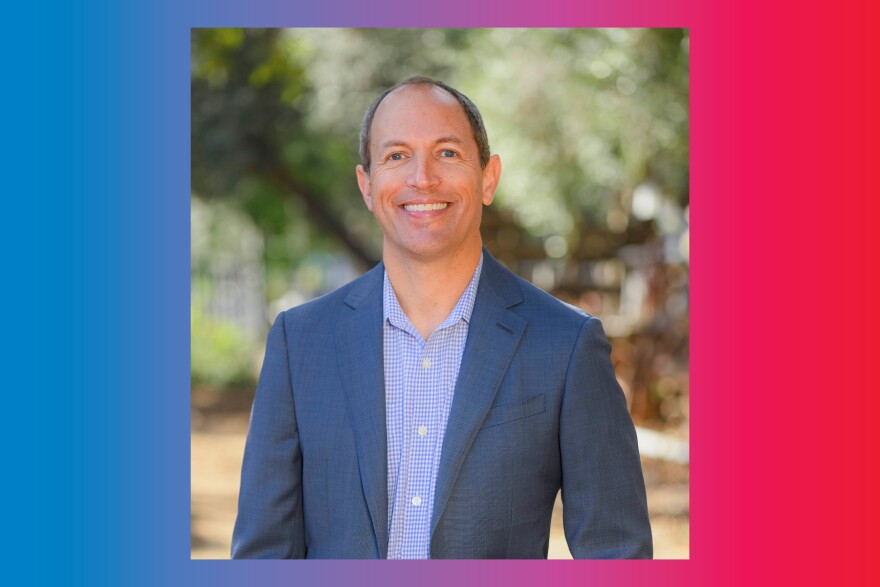What does the San Diego City Attorney do?
The city attorney is San Diego's chief legal counsel. The City Attorney's Office has three main roles: giving legal advice to city staff and officials, representing the city in court and prosecuting misdemeanors and infractions committed within city limits.
While the city attorney technically does not pass laws or set policy, they can use the power of legal advice to steer lawmaking in one direction or another. For example, if the mayor wants to propose a new law, the city attorney can advise against it on the grounds that it's too legally risky — or they can suggest an alternative that they deem more legally sound, but which may not match the mayor's intent.
There have been two failed efforts in recent years to strip the elected city attorney of their responsibility advising city officials and representing the city in court. Those tasks would have been given to an appointed attorney, while the elected city attorney's job would have been limited to prosecuting low-level crimes.
Supporters of the reform argued the mayor and City Council need a willing partner in lawmaking and that the position of city attorney had become too politicized. Opponents argued the city attorney should remain independent and free to give their unvarnished legal advice without the threat of getting fired.
While the reform efforts are dead for now, the city attorney's independence has been a key issue in the campaign between Heather Ferbert and Brian Maienschein.
How much does the San Diego City Attorney make?
The office of San Diego city attorney has an annual salary of $238,479. A ballot measure approved by voters in 2018 ties the city attorney's salary to the salary of California Superior Court judges.
What issues is the City Attorney's Office facing?
Lawsuits: The city of San Diego is a frequent target of lawsuits. People sue the city for all sorts of reasons, including withholding public records, failing to maintain infrastructure and violating California's strict environmental laws. The city attorney alone cannot prevent these lawsuits from happening, but can advise city officials on how best to avoid them — or how to cue up the strongest legal defense possible when lawsuits are filed.
The city attorney themself typically does not represent the city in court, but rather signs off on the litigators and their legal arguments.
Relations with mayor and City Council: City Attorney Mara Elliott has butted heads at times with Mayor Todd Gloria and some city councilmembers over policy questions, including the 2022 settlement that had the city purchase the scandal-ridden office tower at 101 Ash St. Elliott advised against the settlement and instead wanted to fight the building's sellers in court. The disagreement showcased how the city attorney can advise policymakers, but cannot force them to follow that advice.
Tension between the different branches of government isn't necessarily a bad thing — it's a part of the checks and balances meant to prevent any one person from having too much power. The next city attorney faces the challenge of staying independent while also allowing the mayor and council to pursue their policy goals within the bounds of the law.
Staff retention: Like many city departments, the City Attorney's Office often struggles to recruit and retain top talent. High staff turnover and vacancy rates diminish the office's ability to provide the best legal advice and defense.
Improving staff recruitment and retention may require improving the wages and benefits offered to deputy city attorneys and the staff that support them. It could also require good management practices, like offering incentives for high performance and giving support and training to help employees do their best work.
Who are the candidates?

Heather Ferbert
- Chief deputy city attorney
- Democrat
- Former attorney for San Diego Housing Commission
Closer look
Heather Ferbert has worked in the City Attorney's Office since 2014, eventually rising to the rank of chief deputy city attorney. That's the job title that will appear next to her name on the ballot — and it's the same job title that was held by current City Attorney Mara Elliott when she was first elected in 2016. For a position that many voters are unfamiliar with, a job title that makes a candidate look almost like an incumbent can offer a big advantage.
Prior to joining the City Attorney's Office, Ferbert worked at private law firms that represented public agencies, including the San Diego Housing Commission. She argues she has the most direct experience in municipal law, the most experience as a practicing lawyer and the best understanding of what makes a good city attorney.
Ferbert has less support from the political establishment, such as high-profile elected officials and the business groups and labor unions that can raise and spend money on their preferred candidate's behalf. She frames this as an advantage that would make her the most independent city attorney, untainted by the relationships and alliances that her opponent has built over his two decades in elected office.
As a chief deputy city attorney, Ferbert wrote the legal memos used by the City Council to craft restrictions on homeless encampments. She says she wants to expand the city's Family Justice Unit, which is run by the City Attorney's Office and offers support to victims of domestic violence, elder abuse, sexual assault and sex trafficking.
Key endorsements
- San Diego City Attorney Mara Elliott
- Deputy City Attorneys Association of San Diego
- San Diego Municipal Employees Association
- San Diego Union-Tribune Editorial Board

Brian Maienschein
- California state assemblymember (District 76)
- Democrat (Republican until 2019)
- Former San Diego city councilmember
Closer look
Brian Maienschein has a long history in San Diego politics. He served on the San Diego City Council from 2000 to 2008 and since 2012 has served in the State Assembly. Prior to elected office, Maienschein worked as a law clerk in San Diego Superior Court and as a private attorney.
In January 2019, a few months after winning re-election to the Assembly by only 607 votes, Maienschein switched his party affiliation from Republican to Democrat. He said his near-defeat did not factor into his decision, and that his politics had simply shifted to the left while the Republican Party had moved too far to the right.
Maienschein has authored several laws, including AB 1633, which reformed the type of conservatorship that Britney Spears was under from 2008 to 2021. The law gives more rights to people with disabilities, substance use disorders or mental health challenges who are placed under conservatorship, and it provides less restrictive alternatives to conservatorships.
Maienschein has won support from deep-pocketed political and interest groups, including the county's Democratic Party and the largest organizations representing local businesses and labor unions.
In 2023, Ferbert's campaign sought to challenge Maienschein's eligibility to run for city attorney. Ferbert argued Maienschein had not practiced law for at least 10 years — a requirement adopted by voters in 2016. Maienschein first got his law license in 1994, but his license was inactive for most of the 30 years since then.
An outside review determined Maienschein could count his time with an inactive law license and is eligible to run for city attorney. Maienschein dismissed Ferbert's challenge as a "frivolous political stunt." Ferbert maintains Maienschein has too little experience as a practicing lawyer.
Key endorsements
- San Diego Mayor Todd Gloria
- San Diego County Democratic Party
- San Diego Regional Chamber of Commerce
- San Diego and Imperial Counties Labor Council
Explore your virtual ballot
We teamed up with Ballot Ready to offer in-depth information about what's on your ballot with this interactive guide!
- Use your address to get a personalized ballot
- Get info on candidates, measures, and who supports them
- Keep track of your choices and use them to vote







